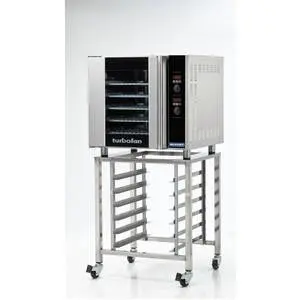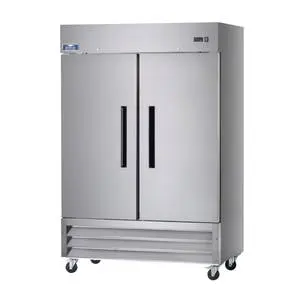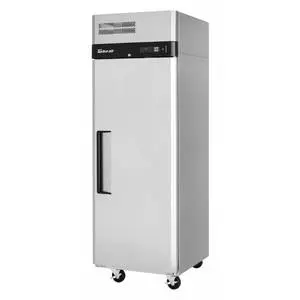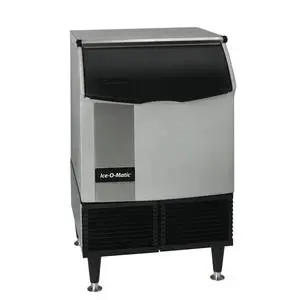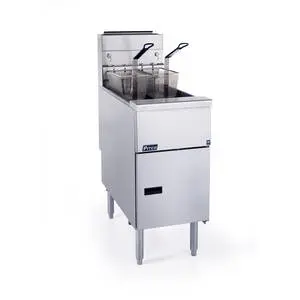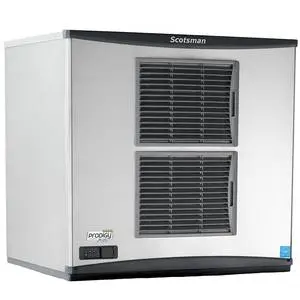Follow these tips to help you save on commercial kitchen utility bills
A restaurant's energy bill is one of its largest expenditures, but is one of the most manageable as well. To effectively increase your energy efficiency involves more than just using less energy - it requires you becoming aware of how energy is used, where it is wasted, and how it can be used more effectively and efficiently. There are a few simple steps business owners can take to cut their utility bill and increase profit potential. Consider these five ideas from the foodservice industry experts at ACityDiscount.
1. Arrange the kitchen strategically
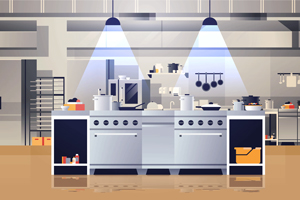
Design and layout are important when it comes to creating an efficient kitchen. Your restaurant's kitchen may be arranged in a manner that discourages efficiency. The most energy-efficient commercial kitchens will keep cooling equipment together, like refrigerators, freezers and ice machines, while grouping hot appliances together, such as the broiler, fryers, stove and oven under a single ventilation system. When possible, keep a good distance between the hot and cold stations. If these stations are too close, the heat could cause your refrigeration units to run at an improper temperature.
2. Make maintenance a priority
No matter if your kitchen is filled with energy efficient equipment or not, regular maintenance is crucial for energy savings. Lack of maintenance can lead to equipment malfunction, reduces profit margins, decreases equipment performance, and increases waste. In addition, poorly maintained restaurant equipment tends to consume more energy which raises your energy bills. To avoid these problems, it is important to ensure that your restaurant equipment is always regularly maintained. Performing simple maintenance steps regularly not only helps equipment last longer, it also ensures every piece in your kitchen is running smoothly and efficiently.
Pay special attention to changing air filters, seals and gaskets in applicable pieces, as these are critical to energy efficiency. Have your staff regularly check the oven, refrigerator and steamer seals. This will help keep heat and cold air from escaping, which allows your machines to operate less frequently. In the long run, maintaining your restaurant on a regular basis will save you money and will save you from having to pay for large repairs in the future.
3. Upgrade to energy-efficient equipment
Tracking the age of your equipment can help you lower your restaurant energy use. Older units require more power to operate than newer, energy-efficient models. New restaurant equipment requires an investment, but when you consider the amount of energy dated pieces use, it might be the smartest investment you make this year. Outfit your kitchen in ENERGY STAR® qualified equipment and you can save thousands of dollars each year. ENERGY STAR® certified commercial kitchen equipment helps restaurant kitchen operators save energy by cutting utility and maintenance costs without sacrificing features, quality, or style. Saving energy helps save money on utility bills and protect the climate by reducing greenhouse gas emissions. ACityDiscount has a wide range of ENERGY STAR® options available for commercial operators, including some of the most efficient pieces available today. If you are considering designing an energy efficient restaurant or commercial kitchen, view this guide from ENERGY STAR®.
Shutting refrigerator and freezer doors, adding strip curtains for your walk-in coolers and sealing equipment properly can all make a great impact on energy bills. Freezer and fridge door hinges should also be kept oiled to prevent improper closing.
Restaurant refrigeration equipment also needs a clear airflow area around it. Make sure the space around any refrigeration is uncluttered and clean. Blocked airflow makes it harder for the equipment to cool down.
Another way to make your commercial kitchen more energy efficient is to switch to energy-efficient lighting. Upgrade your current bulbs to LED bulbs which use only a small fraction of the power of incandescent bulbs. Installing motion sensors in bathrooms or storage rooms can also help save on energy costs.

5. Schedule an energy assessment
Most utility companies will come out for free to evaluate a commercial space and identify any areas of concern so business owners can adjust as needed. If possible, schedule maintenance twice a year. These visits should include a thorough inspection, cleaning and repair on the parts of your commercial equipment. Attempting some of these tasks yourself could be dangerous for your equipment or void your warranty.



